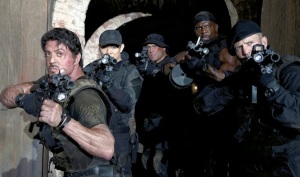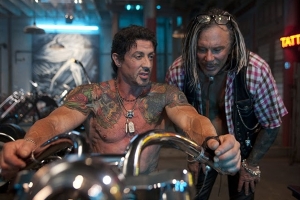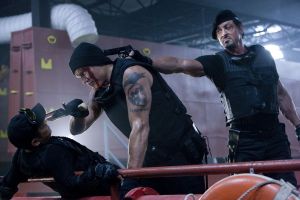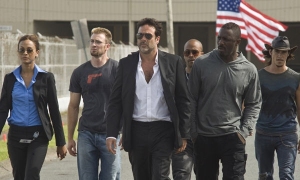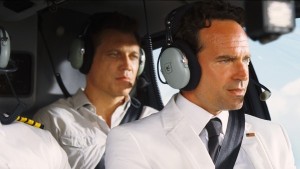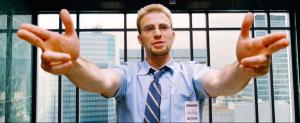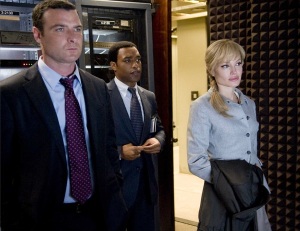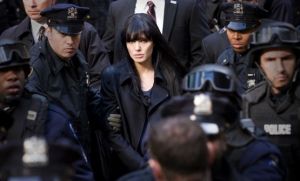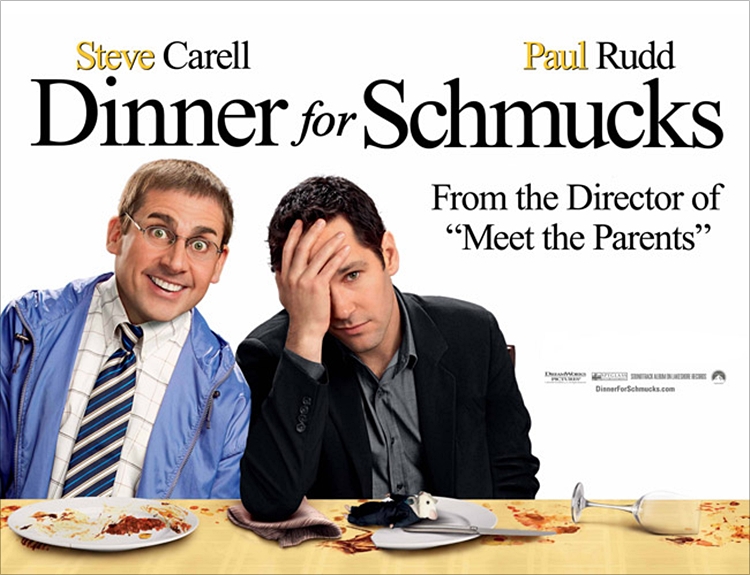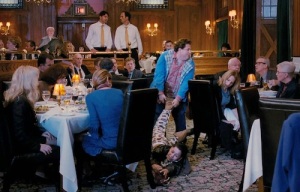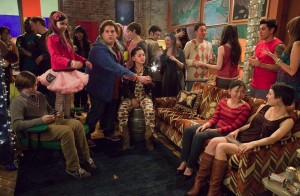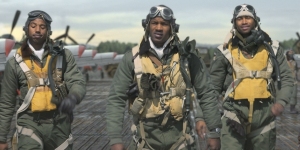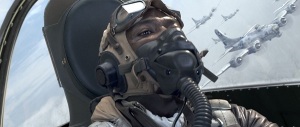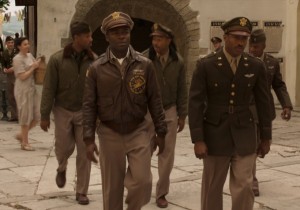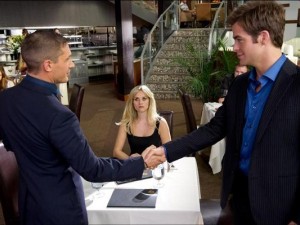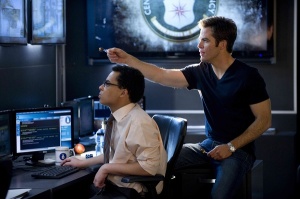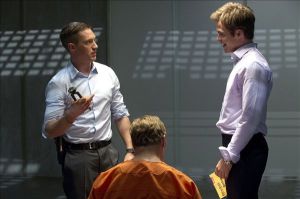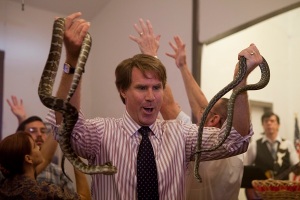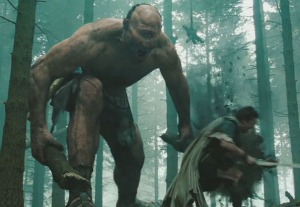 Spring is coming! The snow is melting, the sun is shining brighter and longer, geese are flying back North and Long Johns everywhere are heading into laundry machines for one last spin. Best to start the season fresh by catching up on all the stuff I was writing about while avoiding the worst winter had to offer:
Spring is coming! The snow is melting, the sun is shining brighter and longer, geese are flying back North and Long Johns everywhere are heading into laundry machines for one last spin. Best to start the season fresh by catching up on all the stuff I was writing about while avoiding the worst winter had to offer:
The Monuments Men: Clooney! Damon! Nazis! General ambivalence! Neither the film-art community or the art-art community rushed to embrace this true story of cultural capering in World War II, which isn’t terribly surprising. If you’re a fan of seeing puff himself up about art and history like a Cornish game hen, then you’ll be well served. Otherwise, you’ll find not much here of educational, or entertainment value, which is not something I enjoy saying about a movie with both Bill Murray and John Goodman.
3 Days to Kill: I’m not a big believer in so-bad-it’s-good film viewing. Unless a terrible picture is being ripped on by experts, I’ll very rarely actively seek out terribad entertainment. A lot of it has to do with the schadenfreude that comes with seeing people earnestly try, and fail miserably to do their dream project (I would probably pull a Raiders if I ever had to watch The Room), and part of it has to do with feeling weird about the commodification and ironic adoption of intentionally awful entertainment (your Sharknados et al.).
Now, if a studio with professional actors, production values, and distribution, wants to make a bad movie, and then load that bad movie up with deliriously outdated gender politics and political awareness, I’m more likely to find flecks of gold in that particular turd. 3 Days to Kill is a film I felt myself falling more in more in love with the longer its boring star and story blended with its whackadoodle subtext, and I came out waaaaay more excited about it than any Kevin Costner-starring Taken-knockoff had any right to allow.
Nymphomaniac - Volume I: Not one for the squeamish, I found a lot in Lars van Trier’s latest that will keep your interest, and that also has nothing to do with sex, of which the film has plenty. I'll also be checking in on Volume II next month, but for now it seems like von Trier has half a great little stage play about art as sex, sex as art, and a whole lot in between.
Interview with the creators of The Americans: If you're not watching The Americans yet, you really should be. It's exciting, funny, and has plenty to say about personal and political relationships. It was my 8th favorite show of 2013 during its first season, and before the second started, I got to have a little phone chat with the show's creator, Joe Weisberg, its co-showrunner, Joel Fields, and its executive producer, Graham Yost (who's the showrunner behind my other favorite FX show from last year, Justified). This was my first phone interview and I've never talked with anyone from the TV world of this calibre, so this was a real treat to do. Hopefully the first of many, but if it's the only one, at least it was good practice for an even more high-profile I did a week later, but can't really talk about now, because I haven't written it up yet. Anywho, check out the show, then check out my interview.
Banshee: Much as I've been trying to get out of the weekly recapping game, they keep finding ways to pull me back in! The reason this time: screeners, the shoddily recorded, watermarked to hell little discs that let you watch and write about a show well in advance of its actual airing. Looking to see what the experience was like, I grabbed this assignment to review the second season of the Cinemax series having seen none of the first. After powering through those ten episodes in preparation of getting those that aired over the past ten weeks, I somewhat regretted the choice, as Banshee wasn't really my bag through its first year.
But as I found with Arrow last year, it can be an enlightening experience to spend so much time thinking and writing about a show that you otherwise wouldn't make time for. And as with Arrow, I grew to appreciate the rougher edges around Banshee that didn't appeal to me at first, and liked what it wound up becoming by the time it hit its season finale that aired last night. I'm glad to be off the weekly reviews beat again so that I might have time for features again, but the break may be brief: at the risk of jinxing it, there's a strong likelihood I'll be seeing some review screeners for Game of Thrones Season 4 coming my way any day now. Much as I'm worried about trying to review one of the most popular, densest shows on TV, come on, it's Game of Thrones -you get the chance to watch it early, you take it. And that's coming from someone who's already read the books.
That's all for now. Play me out, creepy James Franco!
[youtube=http://www.youtube.com/watch?v=9etqyqgtHBc]



